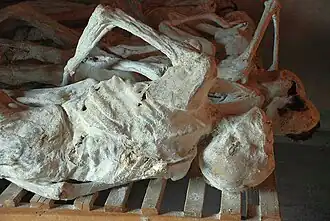Connections between the Rwandan Genocide and Social Psychology
Groups involved
| Group |
Role |
| Belgium |
Former colonist of Rwanda; pulled out in the 1960s to allow Rwandan self-rule. |
| Hutus |
The most populous ethnic group in Rwanda. |
| Interahamwe & Impuzamugambi |
Paramilitary Hutu extremist groups who were involved in perpetrating genocidal acts towards Tutsis and moderate Hutus. |
| Tutsis |
The second most populous ethnic group in Rwanda. |
| Rwandan Patriotic Front (RPF) |
Tutsi-backed guerilla army which fought back against the Hutu-extremist government in order to end the 1994 genocide. |
| United Nations |
Controversially did not act strongly to prevent or further limit the genocide. |
| United States |
Controversially did not act strongly to prevent or further limit the genocide. |
People involved
| Name |
Role |
| Brent Beardsley |
Operations Manager for fellow Canadian Lieutenant-General Roméo Dallaire, Force Commander, during the Rwandan Genocide. |
| Roméo Dallaire |
Force Commander of UNAMIR, the ill-fated United Nations peacekeeping force for Rwanda between 1993 and 1994 |
| Mbaye Diagne |
Senegalese Army officer and UN military observer credited with saving many lives during through rescue missions at great peril to himself. |
| Paul Kagame |
current President of Rwanda and former leader of the guerrilla Rwandan Patriotic Front (RPF) army, whose invasion of Rwanda is often cited as the primary reason the Rwandan Genocide came to a close. |
| Carl Wilkens |
Former head of the Adventist Development and Relief Agency International in Rwanda. He was the only American who chose to remain in the country after the genocide began. |
| See also |
Category:Rwandan Genocide people (Wikipedia) and Interviews (Ghosts of Rwanda, PBS) |
Some students observations and comments which connect aspects of GOR with principles, theories, and research in social psychology are listed here (feel free to edit/add, etc.):
- SteveHenry observed that the interviewed farmer who had been involved in killing explained by this as the "devil" overtaking him (perhaps because "religion" provided a salient schema). Also note the self-serving attribution bias to explain one's "undesired" behaviours externally.

_at_Murambi_Technical_School.gif)